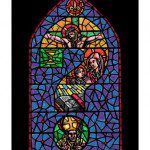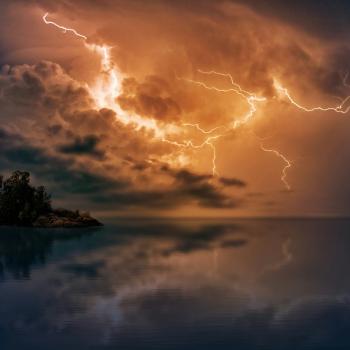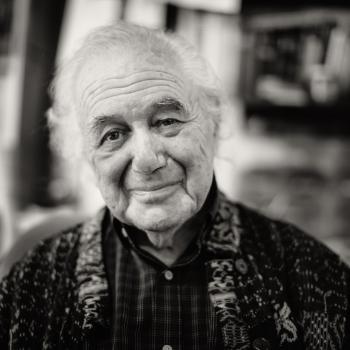 A few months ago I had a reader contact me about a blog post I had written. Like a lot of my Wake Up Call columns, it referenced God, and this particular person had a question that went something like this:
A few months ago I had a reader contact me about a blog post I had written. Like a lot of my Wake Up Call columns, it referenced God, and this particular person had a question that went something like this:
“I enjoyed your story but you didn’t answer the question: Who is God?”
It was a peculiar query, since this particular column wasn’t addressing the subject at all. Yet it got me thinking. Could I actually define God? Who is this entity that I pray to each morning, find solace in when the going gets tough, and thank for my many blessings?
I quickly realized I was opening the proverbial can of worms, as the question can be answered very differently depending on your personal religious and spiritual beliefs. And while I was raised a Catholic, which has helped form my spiritual base, my perspective on God comes from a rich tapestry of belief systems that I’ve encountered and studied during my lifetime.
So what follows is my personal perspective, what I call my religion of one, applied to the query “Who is God?” Since there was no quick, pithy way to answer the question, it seemed easier to explain my own beliefs through a progression of points that hopefully tie together as a whole.
- For starters, I believe there is a God.
- I believe God appears in different ways to different people according to your faith, so my God may be very different from your God.
- Both of our versions of God may be true.
- As a child, I believed God was a bearded, fatherly figure who sat on a throne in heaven.
- I was later taught that God was the Trinity of the Father, the Son and the Holy Spirit.
- I now believe what the Christian theologian Paul Tillich once said: God is being itself, not a being.
- God is here right now, around me and also around you.
- I believe what Paul said in Colossians 1: Christ is the visible image of the invisible God. But I also believe we are all the visible images of the invisible God.
- Likewise, I believe that like Jesus we are all the sons and daughters of the Creator.
- I relate to the Muslim belief that God does not possess human qualities or attributes.
- I also buy into the Hindu idea that God can not be defined as a he or she.
- I believe that God sometimes appears in human form, in the face of a friend, a spouse, a child, or in anyone you encounter in everyday life.
- Like Emerson and Thoreau, I also believe it is possible to find God in nature.
- While God is all around us, the Divine is inside us as well. As Emerson said: “Look within, with pure eyes and simple trust and you shall find the Deity mirrored in your own soul.”
- I also trust what John said in 4:8, something Miriam Starr expanded upon with this quote: “each faith tradition sings the same song in a different voice: God is love.”
- Of course, I could be wrong about everything, because ultimately God is a mystery. As John Templeton wrote: Why should we expect to be able to describe God when we know so little about divinity? Would a God we were able to describe be little more than a good, wise human?












